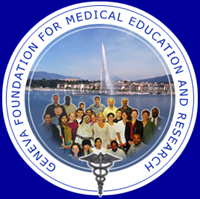Reasons for an epistemology in current medical scientific research
Razones para una epistemología en la investigación científica médica actual
Iván García Ávila1*
1Villa Clara University of Medical Sciences. Cuba.
*Author for correspondence. Email: ivang@infomed.sld.cu
Submitted: 31/05/2018
Accepted: 29/01/2019
The urgent call of the scientific community to make proposals for some basic tools of scientific work in the methodological order to researchers who direct or carry out research or thesis projects, and those leaders who coordinate scientific research groups summon us to reflect about some researching behaviors and praxis evident both in the academy and in the different scientific trade unions in our country and in the rest of the world.
In a first warning we must specify that scientific research is a process of exercise of human thought that involves the description and characterization of a portion that is abstracted from the wide, rich and complex reality, and it is an object of study with the general objective to seek an explanation of the causes of the phenomena that determine the particularities of their development, to achieve a predictive approach to their possible further development, to elaborate an assessment of the implications of the existence (ontological determination) of these phenomena and of the scientific problem derived from them, as well as the relevance of the transformation or improvement of this part of the reality being investigated, which means a challenge.(1)
Offering the basic conceptual foundations to researchers from the precision of the philosophical and epistemological foundations that should guide scientific research today is a requirement in the presence of so many reductionist methodological trends, loaded with new modalities of positivism, utilitarianism, pragmatism and empiricism.
Faced with such obvious challenges of the current trends, we share the argument of Ph D. Guadarrama,(1) who affirms that it is regrettable that sometimes some professors of scientific research methodology have not been personally carrying out a research project, or have not elaborated and supported any master or doctorate´s thesis, and simply, from a second-hand knowledge -only guided by texts on epistemology or research methodology written by other researchers- they try, in higher education, to orient or direct this complex work of conducting scientific research.
We also agree with Dr. Delgado's(2) criterion that the classical ideal of rationality that thought of the subject as an absolute and transcendental entity, separated from the object, faces a contradiction with the development of dialectics and the socio-cultural approach of science, which values the knowledge as a relative and concrete, historical and social subject.
Today it is emphasized in the integrating systemic character of nature, not reducible to the field of any special scientific discipline. From the methodological point of view, holism has preeminence over reductionism. Sciences opened their borders and learned, in addition to their own certainties, uncertainty, instability, variations, irreversibility, in short, interdependence.(2)
In the context of scientific-medical research, Dr. Lage(3) declares to us the epistemic challenge that: "Health sciences are typically frontier sciences. Solutions arise from the contact areas among medicine, biology, pharmacology, chemistry, social sciences, etc. Advances not only the one with more knowledge, but the one that best combines them".
The change that the studies of complexity and complex thought are producing in our idea of the world and that of science, show the need for a revolution in scientific knowledge.
The fact that dialectical, systemic, holistic, complex, transdisciplinary, etc., approaches in recent years have been gaining greater prominence in scientific research in general and in particular in the social sciences, have resulted in a relative weakening of the different types of epistemological reductionisms, does not mean that they have disappeared or are in definitive ways of extinction, because humanity, although it advances infinitely in the process of enrichment of its episteme cannot ignore some difficulties, obstacles, idols, that underlie and often revive, especially when new horizons or scientific and philosophical paradigms appear.(4)
Finally, we would like to warn about the generalized and highly criticized quantophrenic tendency in the different fields of scientific research today, which seem to predominate in the studies, creating a kind of death of the intelligentsia and consolidating the rise of enlightened bureaucracy, which consideration of Villena Oliver, referenced by Lucas Marín,(5) the reality is not the numbers and reducing it to mathematical models would lead to all a great confusion as if the social facts were only real if they are authenticated solely and exclusively by numbers.
BIBLIOGRAPHIC REFERENCES
1. Guadarrama González P. Fundamentos filosóficos y epistemológicos de la investigación científica. Cap. 1. En: Dirección y asesoría de la investigación científica 3ed. Bogotá: Editorial Magisterio; 2017.
2. Delgado Díaz CJ. Hacia un nuevo saber. La bioética en la revolución contemporánea del saber. La Habana: Publicaciones Acuario; 2007.
3. Lage A. Los desafíos del desarrollo: la actividad científica como eje de la formación del personal de salud. Educ Med Salud. 1995;29(3-4):243.
4. Sotolongo Codina PL. El pensamiento y ciencias de "La Complejidad": una nueva manera de obtener el saber. Rev Entretextos. 2017;11(21):12-20.
5. Lucas Marín A. Fundamentos de Teoría Sociológica. Madrid: Tecnos; 1986.
This article has been published under the license of Creative Commons
Copyright (c) 2019 EDUMECENTRO

Esta obra está bajo una licencia de Creative Commons Reconocimiento-NoComercial-CompartirIgual 4.0 Internacional.










